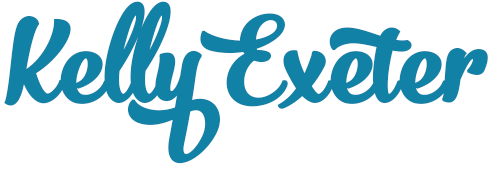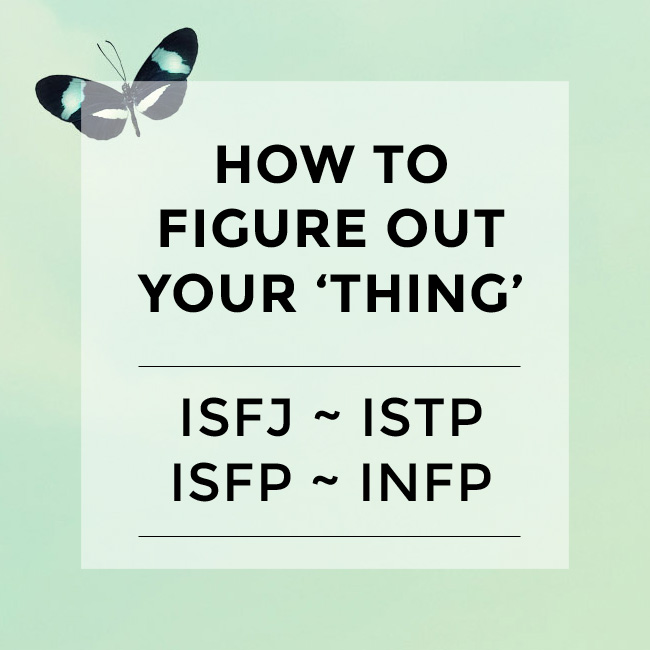Before you read on below …
I am going to assume you’ve read this and this. Otherwise the below will lack context 🙂
ISFJ
ISFJs like to help people in practical, tangible ways with great use of their attention to detail.
Like the other SJs they are all about concrete, objectively productive results but ISFJs add an element of helping others.
ISFJs do not like to go “big picture” and will shy away from any assignment or job that is vague and the steps involved are not clear to them. Instead they are driven to reach any closure they know how to reach.
My mum is an ISFJ and good grief, does she take attention to detail to the nth degree. She tracks all her household’s money in an accounting program and has been known to find money in the washing machine and enter that found amount into the household accounts. Unsurprisingly she has found her sweet spot as a book keeper. She is the book keeper for my business and while I often find myself cursing her for her relentless anal-ness … we do have stunningly perfect books and the ability to run the most amazing financial reports at the drop of a hat. Mum absolutely thrives on being able to present all her clients with gorgeously detailed reports at the end of each month fully knowing the power that such reporting gives to a business.
Meanwhile my running coach Jon is a great example of an ISFJ who has found their ‘thing’ outside of their profession. A sales rep by day, outside work hours Jon has a huge passion for coaching. There is nothing he loves more than crafting training programs for his athletes geared towards achieving a specific result. It is the perfect marriage of ‘objectively productive results with the extra element of helping others.’
So if you’re an ISFJ looking for your thing – is there a very concrete, results oriented way you can help people in some way?
ISTP
This is the James Bond type – the most calm, cool and collected of the 16 types.
ISTPs thrive in crises and excel at finding THE most efficient way to get the desired result that requires the least amount of effort.
They have an economy of effort and even an economy of motion and speech. They don’t take one step they don’t need to take, say one word they don’t need to say or go to any extra effort they don’t need to go to in order to get the result they are after. They also tend to be exceptionally kinaesthetic (great with their hands, very coordinated, mechanically inclined).
My friend Kelly is an ISTP and recalls a time when she had to perform first aid on her son during a school camp. He was quite hurt so everyone around her was stunned at how calm and efficient she was while doing her thing. But that’s just how she operates in a crisis – in the most efficient and precise manner possible. Kel definitely also brings an economy of effort to everything she does. Inefficiencies drive her nuts and she always finds it amusing that as a single mum people assume life must be hard for her. As she says: “I’m organised and use my time to achieve the most things with the least amount of effort. Doesn’t everyone do that? “
ISTPs are highly motivated by situations where there is a concrete, hands on goal and some urgency. If you’re an ISTP feeling like you haven’t found your thing, you might want to consider volunteer work with the SES or working in the pits at a Formula 1 race ![]()
ISFP
ISFPs have strong personal values and while they do not discuss them much with others, these have a large impact on the ISFP’s actions and decisions.
They seek to feel that they are living their lives in accordance with their values and what “feels” right to them.
ISFPs care deeply about people, seeing something positive in everyone. They take great pleasure in tangibly contributing to the well-being and happiness of others in the moment.
My ISFP friends Lisa Beavan and John Anthony James agree that their values are the single most important thing to them and drive everything they do in life. ISFPs are also happiest when outside in nature and highly value their ‘freedom’. Both Lisa and John mentioned the word ‘freedom’ when I was talking to them with John asserting it is the thing he probably values the most. Lisa said she didn’t understand quite how much freedom was important to her till she had kids. She quickly realised that her general happiness was quite reliant on her being able to find space, tranquillity and harmony in her day and made a big effort to inject those things into her days.
Problogger Darren Rowse is an interesting one because both ISFP and INFP traits resonate really highly with him. And I can certainly see the ISFP side because Darren clearly lives a highly value driven life and has created huge ‘freedom businesses’ in Problogger and Digital Photography School. If you saw him at the recent Problogger conference, beneath the stress you would have noticed how buzzy he was at contributing so positively to the lives of all the conference attendees.
So what if you’re an ISFP who is really struggling right now? Well as you’ve probably figured out there is a VERY broad scope for trying to find your ‘thing’ and there is almost an infinite number of ways you can achieve this. But for many of you I suspect that feeling of ‘freedom’ is what might be lacking and is what might need to be tackled first.
INFP
INFPs are constantly seeking personal understanding and growth.
They can’t get enough knowledge when it comes to becoming a better them.
Self-help books, trying lots of food plans, religions, meditation, yoga, certifications in coaching, heart math, you name it, INFPs have pursued it.
Carly says her friend Kristina is a perfect example of an INFP in a sweet spot: one -on-one helping people with all of the knowledge that she built up over the years just out of her own curiosity and interest. My INFP friends Malini Parker and Nathalie Brown both fit this bill perfectly too.
Malini is a scientist turned artist who fires people’s creativity through the painting classes she teaches. In between developing her craft she also developed a wonderful teaching framework. You need only read the testimonials on her site to see the incredible impact she has on people’s lives.
Speaking of testimonials, look at what people have to say about the difference Nathalie has made to the lives of their families. Nat never stops learning and extending her knowledge in her specialty area – child behaviour. She is incredibly passionate about the children she works with and firmly believes there is no such thing as a ‘problem child’. You can only imagine what a refreshing and relieving thing this is for desperate families (and the children themselves) to hear!
So it’s pretty clear what you need to do if you’re an INFP looking to feel fulfilled in life. You need to be learning new things and constantly developing yourself. And then for bonus satisfaction, you can use those learnings to help others.


